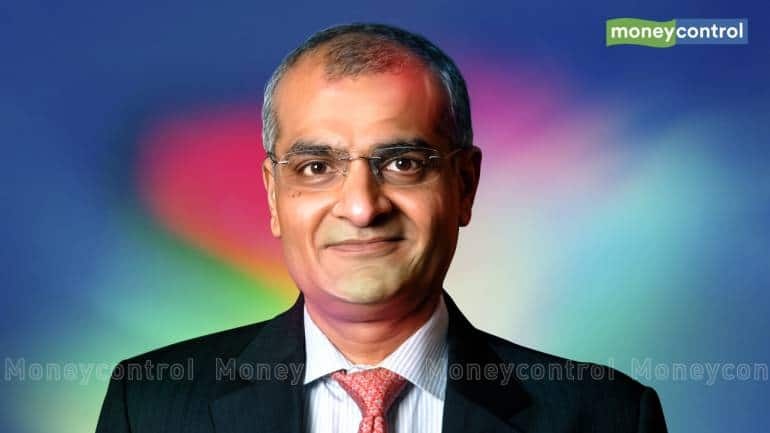
INDIAN MARKET MORE SENSITIVE TO GROWTH, LIQUIDITY THAN VALUATION: RASHESH SHAH
As the market’s record-breaking runs continues after the BJP’s recent win in three key states, the talk around stretched valuations has resurfaced amid the stellar momentum.
Edelweiss Group chairman Rashesh Shah, however, believes the Indian equity market is as sensitive to valuations as growth and liquidity. Shah also spoke on a range of topics in an exclusive interview to Moneycontrol. Here are the edited excerpts:
How big a surprise was the assembly election outcome for you?
Chhattisgarh was a big surprise. It underscores the fact that a lot of things this government is doing have worked well. Investors want stability and certainty, and if this gives more certainty for the 2024 general elections, that will be a good thing, especially for the foreign investors.
Heading into general elections, what does this mean for businesses and markets? Anticipate front ending of capex?
A. A lot of the businesses are looking to expand by acquiring instead of spending on capex. Brownfield expansions and M&A (mergers & acquisitions) are happening because companies want faster payoff.
If there is a certainty, what is the wait for?
With greenfield capex, there is uncertainty around cost overruns and approval processes, etc. Currently, companies are looking for certainty in generating cash flows which comes through M&As or brownfield expansion. Corporates are scarred with burdens of high debt (in the past) and hence are unwilling to take the risk to invest in greenfield capex. They are building more cash than they need. Animal spirits are coming back, and so is a little bit of growth hunger. But there is still a need for quicker payoffs. In 18 months, these opportunities for M&As and brownfield capex will go away. Corporates will have to take greater risks, focus on structured financing and put up new greenfield projects. That’s when the real capex will start, until then, we remain dependent on government capex and spending.
After the state election results, do you foresee FIIs front-loading investments or will the foreign investors wait until after the general elections?
FIIs have been withdrawing money from India for the last couple of years. I think the state election results will ensure that FIIs will no longer withdraw money from India. However, they may still refrain from pouring a lot of money in India largely due to two major factors: the stability of India's policy decisions and interest rates around the globe. India’s policy stability has improved after the election results. As soon as the interest rates across the globe fall or stand at the cusp of falling, there'll be a lot of FII inflow into India. Falling US interest rates will be the key catalyst rather than election results.
What is your perspective on US interest rates? Do you believe they have peaked?
In my view, US interest rates have peaked. Inflation has stabilised across the world, and that augurs well for India. But it will take another three to six months for the US Fed to officially indicate that the interest rates have peaked. That will be in India’s favour, as long as the next expected step is a cut in interest rates.
Where do you anticipate incremental money flowing into next year - equity or debt?
I think it will be divided 50-50 between equity and debt. Investors want to lock their profits in yields. Until last year there was still some confusion over interest rates. But now there is growing confidence in sovereign debt, along with interest in Infrastructure Investment Trusts (InvITs) and Real Estate Investment Trusts (REITs).
Also Read | Rally here to stay; foreign investors playing the India story via midcaps, says this wealth manager
Which factors do you think will differentiate the best and worst-case outcomes?
Inflation remains the foremost factor between the best and worst outcomes. Global growth rates and a significant global slowdown are additional considerations if it affects margins.
Credit market conditions in India with tight liquidity may also act as a brake on growth. Over the last one and a half years, the Indian equity market has been on the upper end of valuations.
However, India is more sensitive to growth. If the GDP growth is above 7 percent and the growth spirit is back, then the valuation concern will abate.
Zoreign investors are more driven by valuations as compared to liquidity and growth but Indian investors are more focused on liquidity and growth. Moreover, India will always remain expensive because there is a lot of domestic capital that is now coming into the markets, and will keep the market valuation fairly stable.
How do you assess real estate growth, given its recent exceptional performance and strong demand for luxury houses? Do you see potential for a cyclical move in real estate from here on?
After a nine-year underperformance from 2012-21, stability is returning to the real estate sector. However, while the upper end of the market is doing very well, there are concerns that the affordable segment is still subdued. Post-COVID, the rich at the upper end of the income scale are buying bigger homes. But the household balance sheets in the rural, middle and lower income groups have gotten weaker. The major worry lies in the slower recovery in rural and middle-income group's consumption.
Also Read | Samir Arora's hot picks: HDFC Bank, Zomato, KPIT Tech, MCX and what more?
Disclaimer: The views and investment tips expressed by experts on Moneycontrol are their own and not those of the website or its management. Moneycontrol advises users to check with certified experts before taking any investment decisions.
2023-12-06T07:55:23Z dg43tfdfdgfd